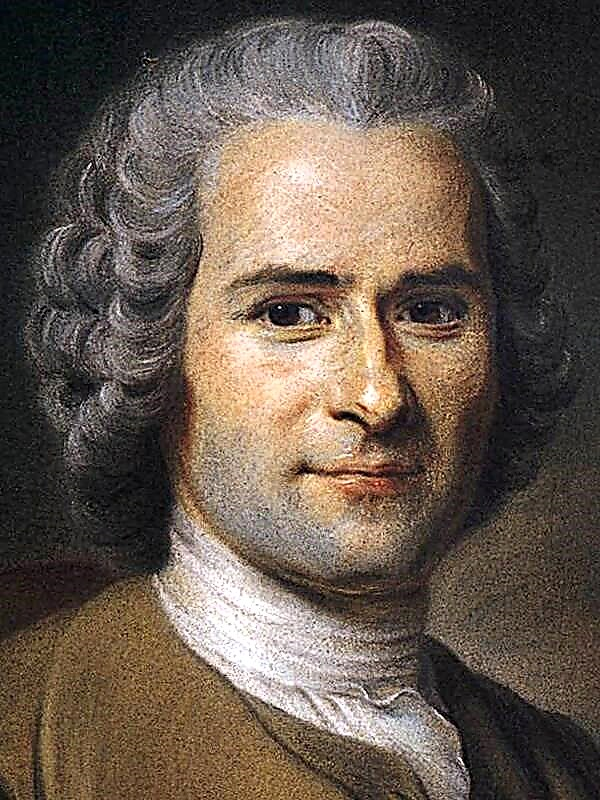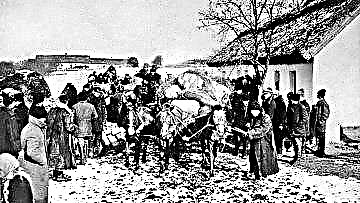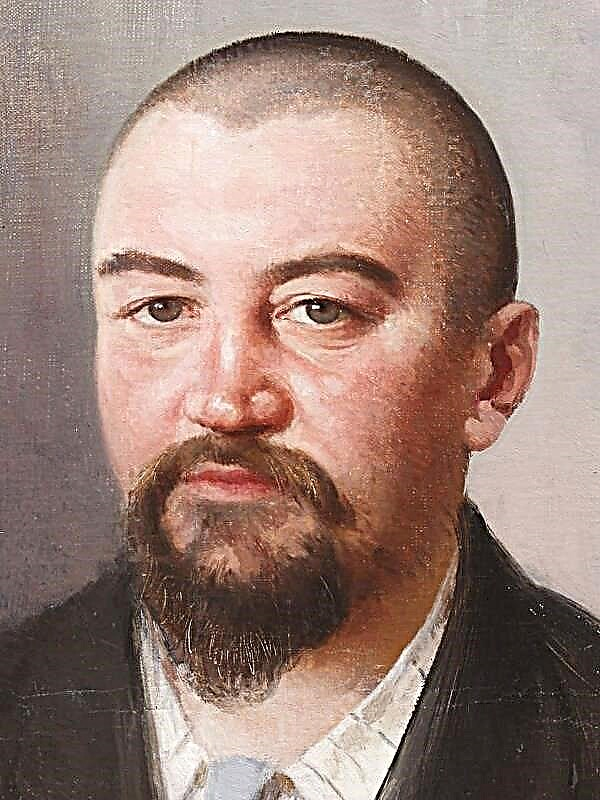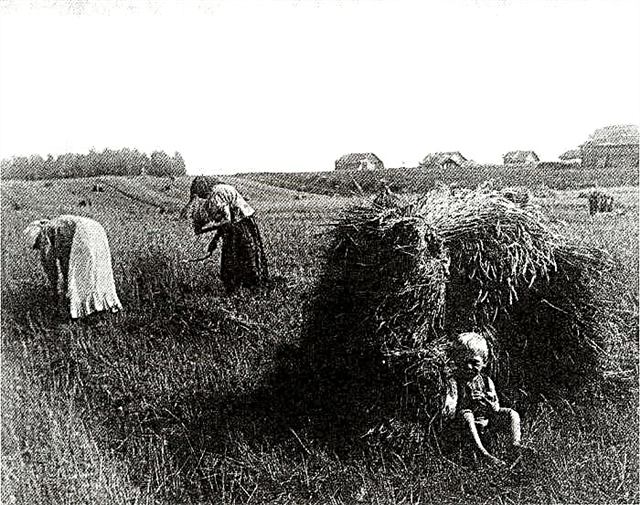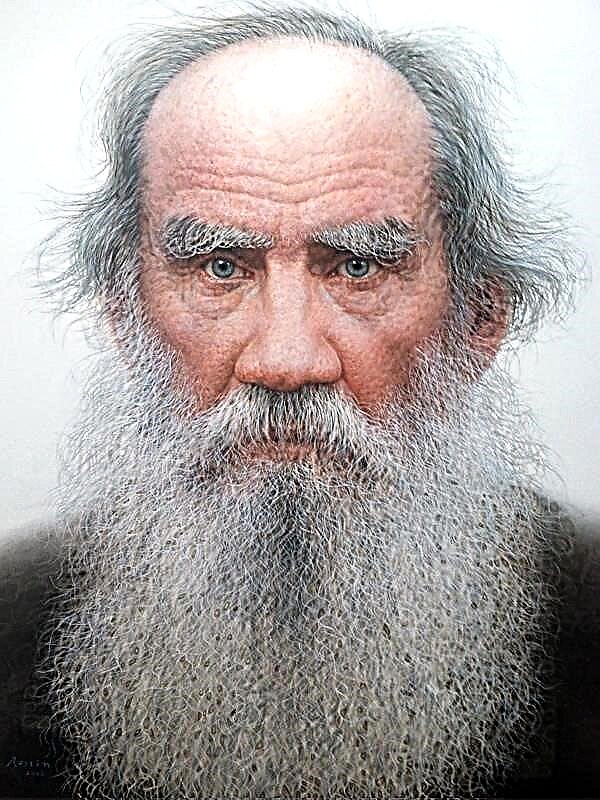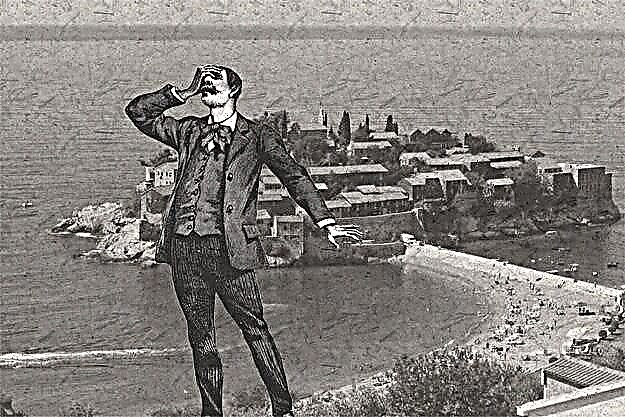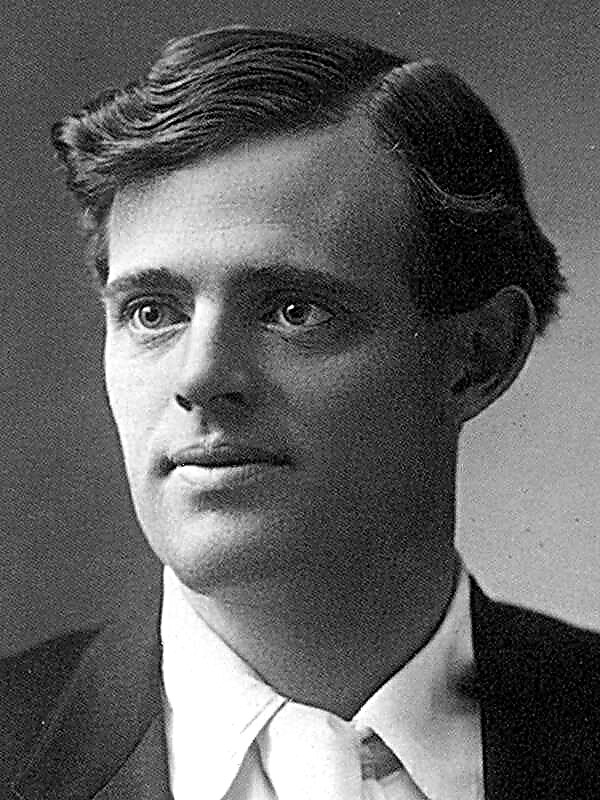A young girl, Carol Milford, graduates from Blodget College in St. Paul and thinks about what noble occupation she should devote her life to. She intends in any business, no matter what she does, to achieve significant results. First, she worked for a year in Chicago, in the city library, then in the St. Paul Public Library. Once, on a visit, she meets Dr. Will Kennickot from Gopher Prairie, a small town of two to three thousand inhabitants, and after a while marries him.
Arriving in Gopher Prairie, Carol is discouraged by the absurdity of the buildings and the undevelopment of the town as a whole. In honor of Carol, the local elite, to which her husband belongs, arranges an evening at the home of Sam Clark, the owner of a hardware store. In clothes, in the manner of holding these people, Carol sees only depressing provincialism and tightness. Among them are the owner of the haberdashery shop Harry Haydock with his wife Juanita, and the owner of the pharmacy Dave Dyer with his wife, and the owner of the sawmill Jack Elder, and the first rich man in the city, Luke Dawson ... The only entertainment these people allow themselves on such holidays, remains unchanged from year to year: someone tells the same old joke, another recites the same verses from time to time, the third sings and so on. After such “entertainments”, men and women break up into groups and conduct conversations that are usual in their environment, without a shadow of novelty: men talk about cars, about business, and women talk about children and about the kitchen. Even gossip does not provide enough topics for conversation. From time to time, silence, like fog, clouds the room. Then comes the dinner time: chicken sandwiches, cake, ice cream. Now everyone has a lesson and everyone is happy. After dinner, you can go home and go to bed at any moment.
Carol takes in the house the maid Bee Serenson, a Swede, a strong and funny girl who is tired of working on the farm and who came to Gopher Prairie at the same time as Carol. Soon, young women, despite the difference in social status, become friends.
Carol wants to remake the whole town, she vaguely wants to have someone with whom she could share her thoughts. One day, Miss Wajda Sherwin, a teacher at a secondary school, came to her a few years ago, who had come to the city to work under a contract and had already managed to occupy a prominent place in it thanks to her active and active nature. Wajda becomes Carol's second girlfriend and treats the girl a little patronizing, since she is ten years older than Kennicott’s wife and is better acquainted with the inhabitants of the town, his mores and problems.
Arranging a housewarming party in her home, Carol makes every effort to use her ingenuity to make the evening fun and guests not to be bored. She arranges games, charades, treats guests with original dishes, does everything to bring a fresh stream in the manner of the city elite to arrange holidays. It seems to her that her idea was a success, but later it turns out that her evening only envied those who could not afford to buy the furniture that Carol bought, the discontent of the shopkeepers who sell furniture, because she didn’t buy it from them, and reproaches of excessive extravagance and desire to stand out. The next evening arranged by someone is as boring as all the previous ones.
With the onset of winter, Carol discovers that she absolutely has nothing to do: it would be indecent for her to go to work as the doctor’s wife; Kennikot does not want to rush with the child yet. Carol can only begin long-planned transformations or merge with the city so much that she spends her energy on attending church, an educational club and playing a bridge in the club “Cheerful seventeen”, consisting of young women whose husbands belong to the top of urban society.
Little by little, Carol begins to feel a certain chill in relations with residents who consider her a proud and too fashionable fashionista. Carol is worried and lonely. It seems to her that no matter what she does, the town is stealthily watching her and discussing her. Waida, wanting to dispel Carol, takes her to the educational Tanatopsis club, where women read new magazines and discuss current events, as well as issues of literature, architecture, economics. Carol decides to “fight” rather than be eaten and begins her attempts to remake the city, wake him up. She is trying to get money from the local rich to build a new town hall, new school and church, but nothing comes of it. Everywhere she encounters stagnation and internal resistance.
One day, Carol meets Miles Björnstam, a plumber and stove-maker, who in the city is called the “Red Swede” for his rebellious spirit. At the moment of spiritual doubts, he supports Carol, advising her not to pay attention to others, just as a seagull soaring in the sky does not pay attention to seals crowded on the shore. Little by little, Carol’s relationship with Gopher-Prairie is normalizing, which costs her considerable efforts and some pretense. In December, Carol had a serious conversation with her husband, their first quarrel, which nevertheless allows her to better understand Kennicott, his aspirations and secret hopes. As a result, Carol is in love with her husband for the next month, as she probably has never been in love before. The strengthening of her feelings is also facilitated by the fact that once she is present at an operation that Kennicott performs in extremely difficult and dangerous conditions. However, after some time, her ardor cools down, she feels that her husband is too down to earth, too attached to his work, car, hunting, friends and resale of land. She cools down somewhat to her husband and even moves from a dormitory to a separate room.
One day, after another joint trip with friends outside the city, Carol decides to organize an amateur theater. Her plan is supported by many of her friends. After numerous rehearsals, a performance will take place that strikes Carol with the mediocrity of the actors' play, but everyone is satisfied: the actors themselves, and the audience that they saw their friends in a new role. For Carol, the theater is over. She has nothing to do again.
In June, Bee and Miles Björnstam, who had been courting her since the winter, marry, and Carol loses her servant and confidante. Bee's successor is the elderly silent Oscarine, who is maternal to Carol and takes on her kitchen responsibilities as zealously as Bee.
A few months later, a world war erupts in Europe, from which Gopher Prairie first shudders in sweet horror, but then calms down again. Carol is expecting a baby at this time. She gives birth to a healthy boy with a straight back and strong legs, who is called Hugh and who gives meaning to her sluggish existence. She is no longer drawn to her husband as before. Kennickot feels abandoned and falls into the love networks of Maud Dyer, the wife of a pharmacist who has trouble with her own husband. From time to time, Kennicott cheats on Carol, although he still loves only her one. Carol, on the other hand, devotes all her time to Hugh, who loves to play with his son B., Olaf Bjernstamom. Once, after drinking water from an infected well, Bi becomes ill with typhus and dies in a few days. For Carol, this is a terrible blow.
Soon a new face appears in the city: a young, very beautiful Swede, a tailor by profession, Eric Walberg. Carol immediately sees in him an individuality, an inspired nature. Young people find that they have a lot in common, and begin to meet often. Carol has a feeling for him that she never had for her husband. Having succumbed to him and Eric's passionate speeches, she is already ready to leave her husband. Only prudence and restraint Kennicott help him convince his wife not to leave the family. Carol suffocates in Gopher Prairie and, together with her husband, is forced to travel for six months along the coast of America. Having returned, she still feels that she can no longer stay at home, where life goes on as before, so she takes Hugh and leaves for Washington. There she works at the War Risk Insurance Bureau, communicates with interesting and knowledgeable people, and lives a full-blooded life. A year after his wife’s departure, Kennickot arrives to visit her and his son. By that time, Carol manages to find out that there are disappointments here, that in the afternoon, work in the office is deadly tiring, that any office is full of intrigue and gossip, like some Gopher Prairie. She learns that most women serving in government offices have an unhealthy lifestyle, living in cramped rooms, and eating badly. But she also learned that female employees can meet and make friends and enemies as openly as men, and enjoy the bliss completely inaccessible to housewives — a free Sunday afternoon. She feels that her work is connected with the concerns of people scattered throughout the country, is part of a huge business, not limited to Main Street and the kitchen. Together with Kennicott and Hugh, she goes to the sea for two weeks. She hesitates to return to Gopher Prairie. Kennicott, however, believes that Carol should think things through. Active hatred of Gopher Prairie has dried up in her, now she sees in him a young city of workers. Five months later, Carol returns home. In Washington, it seemed to her that the whole world was transforming, but, returning home, she realized that this was not so. In August, her daughter is born. Carol is not so painfully reacting to the imperfection of Gopher-Prairie, she has become more mature, but she does not want to put up with the fact that nothing can be changed in the city, and she is ready again, but without the same fervor, to devote herself to its transformation.

